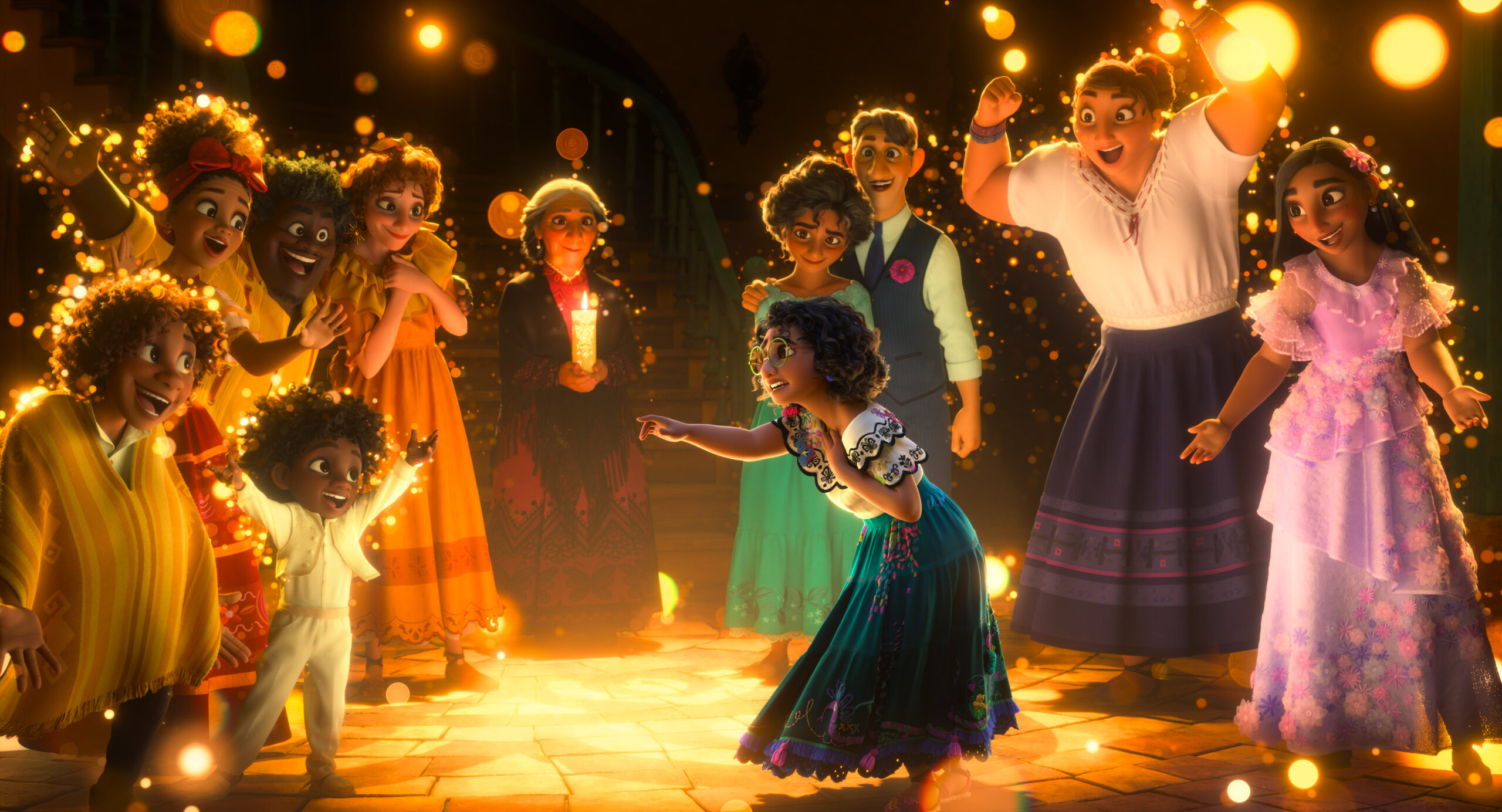Last Christmas, my husband and I devised a plan before visiting my family: we would watch Disney’s Encanto with my little nieces and gift them Mirabel and Isabela dolls afterward as an opportunity for all of us to connect with our Latin American roots. My nieces really enjoyed it, and so did we.
Encanto debuted in cinemas in November 2021. Worldwide Covid restrictions hit its box-office performance, but that changed drastically after its online release a month later. It has now won several awards, including Best Animated Film at the Baftas, the Golden Globes, and, just last night, the Oscars, where it was also nominated for Best Original Score and Best Original Song. In fact, Encanto’s music alone has broken records: Latina composer Germaine Franco is the first woman to ever score a Disney film; and Lin-Manuel Miranda’s song “We Don’t Talk About Bruno” has topped Billboard charts in the USA and the UK for weeks, breaking previous records set by Frozen’s “Let it Go” and Aladdin’s “A Whole New World.”
Set in Colombia, the movie revolves around the Madrigal family and their magical powers. But Mirabel, the story’s glass-wearing, curly-haired teenage heroine, seems to have none. When she discovers that the family’s magic is in danger, she sets out on a journey to try and save it and in the process learns important lessons and exposes family secrets. The film has been praised for its accurate and sensitive depiction of Colombia and its culture, as well as how it tackles different topics such as armed conflict, family pressures, and gendered roles. It has also stood out because of how many people have felt seen by it.
Growing up in Latin America, I did not see many films whose characters looked Latin. Since Encanto came out, Latin American and ethnically diverse individuals have used social media to say they felt represented in the film, either because they physically resemble a character or because they can relate to their reality. Like Mirabel and her sisters Isabela and Luisa, perhaps they have felt they must make their family proud by being courageous, strong, or beautiful. My nieces are half Costa Rican, half Belgian and where they live not many kids look like them. Watching them admire characters who share their features and their culture was priceless.
I was deeply touched by the film. I wept watching the Madrigal grandparents leave their hometown due to armed conflict (something many Colombians have experienced), and as grandmother Alma apologized for having passed on her own trauma to her descendants in the form of disproportionate expectations. I laughed catching subtle jokes about hyperactive, coffee-drinking kids and married couples talking over each other. I also danced to Carlos Vives’ lively closing tune, which left me feeling joyful and proud.
The movie has received criticism and it deserves some of it – for example, to cater to broader audiences, the characters’ Colombian accent was neutralized. Yet, I believe it also deserves praise. Disney worked with its Latin American employees and with Colombian researchers and artists to make the film as authentic as possible. One of them was Alejandra Espinosa, a Colombian culture advisor who helped inspire Mirabel’s character.
To me, the film’s Oscar win symbolizes diversity representation, appreciation, and respect. Minorities have been exploited, misrepresented, and overlooked for too long, and this movie shows how those in power should do everything they can to bridge the gap and ensure that entertainment media is a true reflection of humanity’s multiculturalism.

